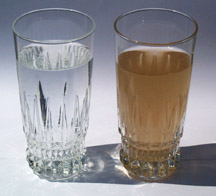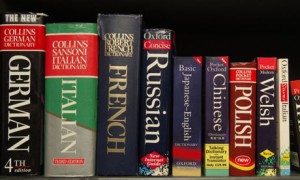Westerners who dared to travel to Sochi for the Olympics have been tweeting about the problems they’ve encountered in their hotel rooms. Things like rusty water; things which every Russian has to deal with every day. To Russians, it’s their life. And it’s not funny.
My hackles rose when I read some of the tweets. “Hello?” I said to no one in particular, with my poor husband (as usual) being the audience to my venting. “They’ve traveled to a foreign country. What did they expect? They’re not in America! It’s not wrong; it’s different.”

Russians are calling the essence of the tweets zloradstvo or malicious glee. Happiness at someone else’s expense. All humans understand the concept, but I don’t believe we have an English word that encapsulates it.
As I read some of the tweets, I didn’t notice outrage or even disappointment, rather a joking tone. The tweeters seemed to enjoy poking fun. It’s been several years since I visited Russia, and I’ve never been an expert in the country that Churchill called “a riddle wrapped in an enigma inside a mystery.” So I refuse to make any political comments.
I have two non-political points. First, other peoples’ hardships shouldn’t be fodder for jokes. No one chooses rusty water. Is it malicious to take delight in that?
I remember the first time I felt convicted that I hadn’t truly forgiven someone who had hurt me. I had gone through the motions; I had said “I forgive you.” But when I heard that something didn’t go well for that person, I realized that, in the inner recesses of my heart, I was glad. I didn’t have the term “malicious glee” to apply to that. I only knew it was something malignant that I had to confess and bring out to the light for the Lord to skillfully cut away and lovingly heal.
My second point is equally simple. How cool is it to have one succint word in your language that perfectly nails a whole concept?
This term for “malicious glee” also brings to mind a German word I love that aptly describes the same ugly idea. Schadenfreude means satisfaction or pleasure felt at someone else’s misfortune. It combines the German words Schaden (harm) with Freude (joy).
Some words are just better in other languages.
Even though Steve has never studied Romanian, he not only knows the meaning of several words that I frequently utter, but sometimes uses them himself. When I try to describe certain situations in English, I come up empty. The following concepts are captured better in Romanian:
Slab (pronounced slob) – weak, poor, powerless, inferior.
De geaba – I did all that for nothing. It was pointless. Futile.
Şmecher – An unsavory character who tries to get your money. When I lived in Eastern Europe, şmechers were everywhere. When I’d come out of the airport, the şmecher taxi drivers would flock to me as though we both wore velcro.
Nemaipomenit – Wonderful beyond words. It means indescribable, and the emotion that can be conveyed with the word is indescribable. (To imagine this in Romanian, picture an Italian speaking with their melodic inflection and gesturing.)
Sunt de accord – I absolutely agree. I’m in accord with you. (This is what Facebook “likes” should be. I can’t click “Like” when someone pours out their grief at their mother’s death, but I can say “I agree; I’m with you on this.”)
 Scandal – Just like the American word, but much more dramatic. It can be used for a small un-scandal-like situation, like when a wildish black cat gets loose and runs up and down the stairwell, and it’s made out to the biggest catastrophe ever to happen in that apartment building. I know. This happened to me.
Scandal – Just like the American word, but much more dramatic. It can be used for a small un-scandal-like situation, like when a wildish black cat gets loose and runs up and down the stairwell, and it’s made out to the biggest catastrophe ever to happen in that apartment building. I know. This happened to me.
Spectacol – Synonymous with scandal.
Slava Domnului – Praise the Lord. The tone is much more expressive. More worshipful.
If you speak a second language, what are some of the words that are just better?